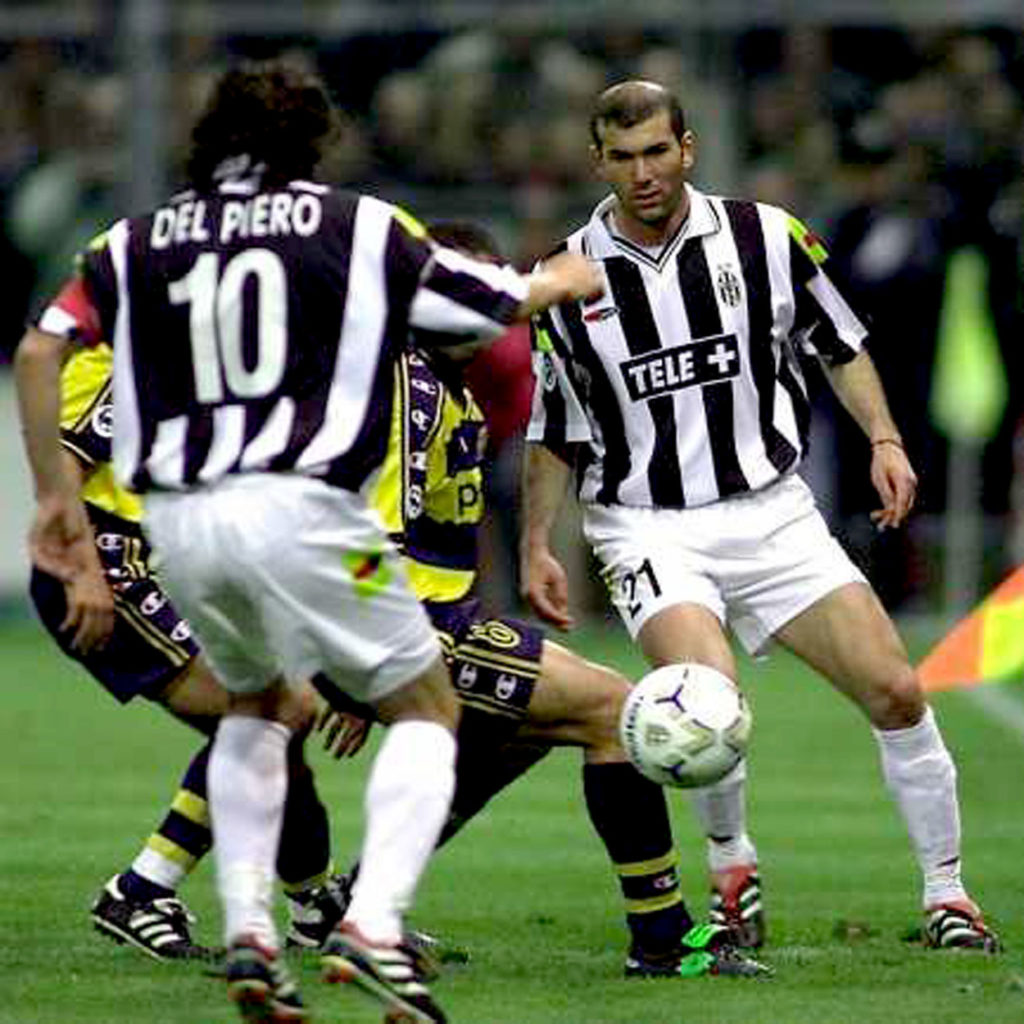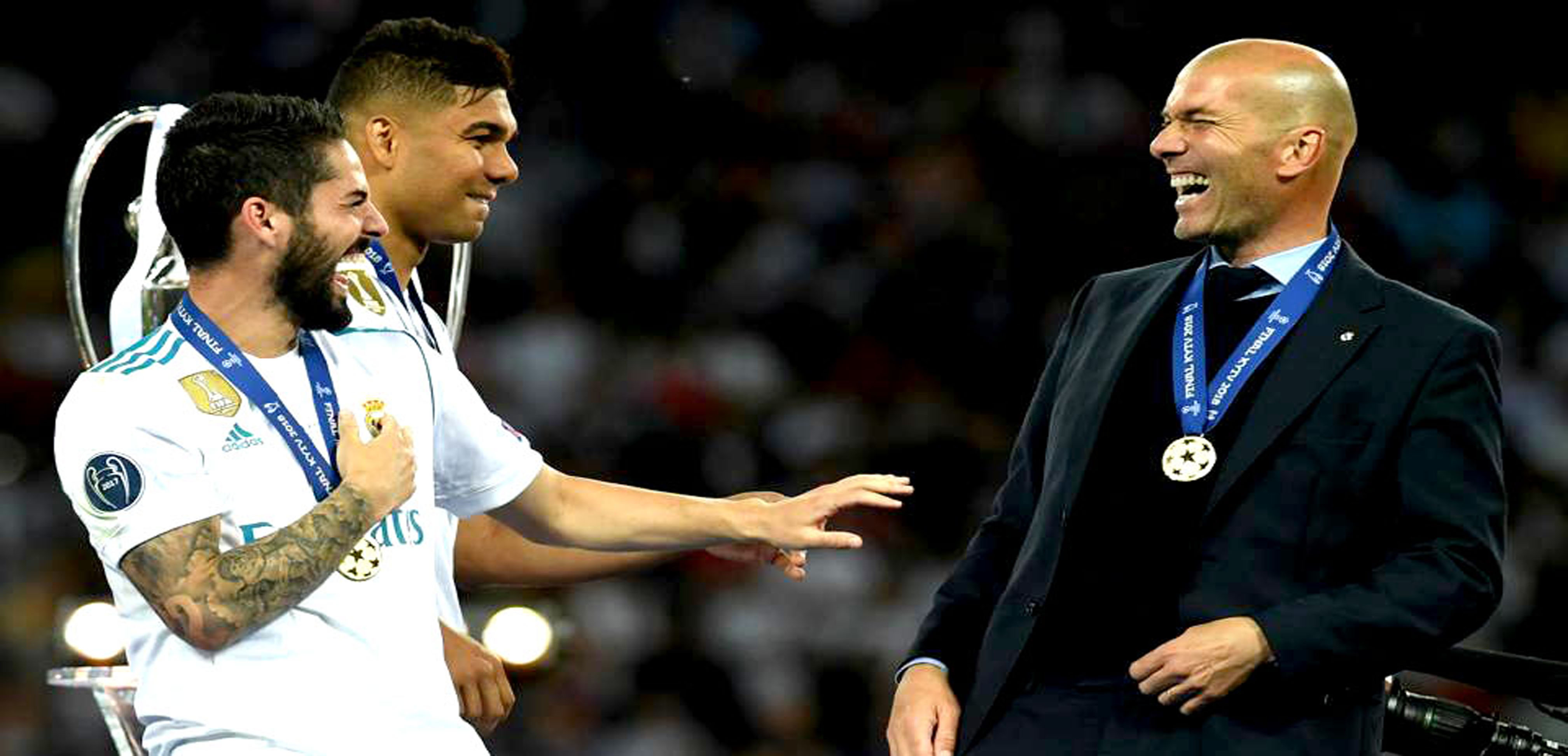 Coaching is not something that comes naturally to everyone. Nor is it a skill that is automatically acquired in the course of learning to manage. And if it has done poorly, it can cause a lot of harm. Good managers give direction to the groups they manage. But the most effective managers who are also effective coaches learn to be selective about giving direction. Rather than use their conversations as an opportunity to exert a strong influence, make recommendations, and provide unambiguous direction, they take a step back and try to draw out the views of their talented, experienced staff. Zidane learned to make the balance between being a manager and a coach at the same time. This is how he builds his coaching philosophy. So. What is the philosophy of coaching?
Coaching is not something that comes naturally to everyone. Nor is it a skill that is automatically acquired in the course of learning to manage. And if it has done poorly, it can cause a lot of harm. Good managers give direction to the groups they manage. But the most effective managers who are also effective coaches learn to be selective about giving direction. Rather than use their conversations as an opportunity to exert a strong influence, make recommendations, and provide unambiguous direction, they take a step back and try to draw out the views of their talented, experienced staff. Zidane learned to make the balance between being a manager and a coach at the same time. This is how he builds his coaching philosophy. So. What is the philosophy of coaching?
Starting the season without a coaching philosophy is like driving across the country without road map and directions. Sure, you eventually may arrive at your destination, but after wasting a lot of time and energy with wrong turns and dealing with unnecessary problems and aggravation along the way. So, every coach has to have a specific philosophy and its different from coach to another, it depended on the coach character and his personality. Basically, coaching philosophy is reflecting the standards you set for yourself and your team, and it’s the foundation of your coaching values and beliefs. A thoughtful coaching philosophy keeps you on the right track as you negotiate your way through the season with the players and your staff.
In conclusion; creating a coaching philosophy is fairly simple. Living up to it all season long is the tricky part.
What is Zidane coaching philosophy?

Despite all the success in Zidane journey, going back in the time when Zidane, was a player especially when he used to play for Juventus, there was an adaptation period. Lippi is known to be extremely demanding of his players and physical fitness was made a priority. Interestingly, Alvaro Morata, who spent two years at the Italian Club, has made similar comments on his first training sessions at Juventus. Morata felt he needed time to adapt to the training methods, and in particular, the high-intensity fitness regime when he first arrived at Real, it seems the methods at Juventus have not changed, and Zidane, as a player, understood the difference that peak fitness levels make in individuals and a team. There is a shift in a player’s mentality when they know they have that little bit extra in the tank, confidence levels rise. Zidane creates his philosophy of coaching and he lay it down for his players.
– I want my team to play, spread the ball about whenever they have it, play it forward from the back and make the best possible decision before they even receive it.
– When they don’t have the ball, I want them to track back, keep it tight in defense, pressure the opposition high up the pitch and never let them get in behind.
– I want them to try and win back the ball as high up the pitch as possible because that will see them avoid having to run an extra 80 meters.
– All of that gives the team balance. Some people will see things differently, but it’s as simple as that to me.
Tactical interest seems to begin with the manager’s character or backstory, and he figures it all. Zidane’s role as a manager (director) of this Real Madrid side involves him with only managing the egos of the players and keeping them happy. Then when he became the head coach that bond becomes stronger. He knows what the expectations are like at the Madrid club. He knows the club, knows the fans and knows the players.
“Football isn’t that complicated. It’s about passing. The higher up the pitch you play, the more dangerous you become. I’m on the players’ side. I listen to them,”
We can say the time he spent with Lippi reform his mentality and build his mindset. Lippi emphasized the importance of the team unit but also recognized that to get the best from that team, the tactics had to be built around the strengths of the individual players within it. Also, when asked about their tactics, many managers will dismiss the idea of formations, responding with the notion that each player has a certain role, rather than the team having one defined shape. But despite this these roles are often so defined and used so regularly that they produce a common theme in terms of formation. Zidane has taken this to the next level, and rather than have players who fit certain roles in a formation, he uses the players’ natural gifts to determine their role and ultimately the shape, which is also based on the opposition.
Zidane, succeeded and he went far than anyone can expect, talking about Real Madrid it is a unique team; there are stars in every position, the most important thing is to maintain a good collective psycho balance, to be successful at blending team spirit and soothing egos of the various players, making out of those ingredients a delicious dish. The players respect him for what he achieved as a player, and in the future, there might be more respect from the wider footballing world for what he has achieved as a manager, and also for the way in which he achieved it.
“What makes a good coach or a bad coach is baffling and mysterious,” according to John Carlin,
A great coach is just like a great director in the cinema world, he knows how to select his cast, he knows every actor strength and weakness, he put the right rule of every individual, he writes the scenario, leaving space which he expects the actor to add the missing sentence and move with their skills and talents. Simply soccer is like that. Zidane is a great coach; he has made his own luck. No doubt that Zinedine Zidane has shown himself to be as good a coach as he was during a wonderful playing career.
Zidane doesn’t fit into any of the conventional managerial brackets; he is unique.
- COVID-19 vaccine - May 27, 2021
- A Promised Land My Notes (1) - December 2, 2020
- Why “A promised Land” Obama’s Book - November 24, 2020
- What do you consider freedom? - October 31, 2020
- The Population is it a Problem or a Gift! - October 5, 2020
- Why do some people fail to improve in something they are really good at initially after a certain point? - September 28, 2020
- What is the way to explore and experience life? - September 28, 2020
- Root Cause Analysis (RCA) - June 26, 2020
- Checklist - May 27, 2020
- Did history talk about Covid-19! - March 28, 2020

